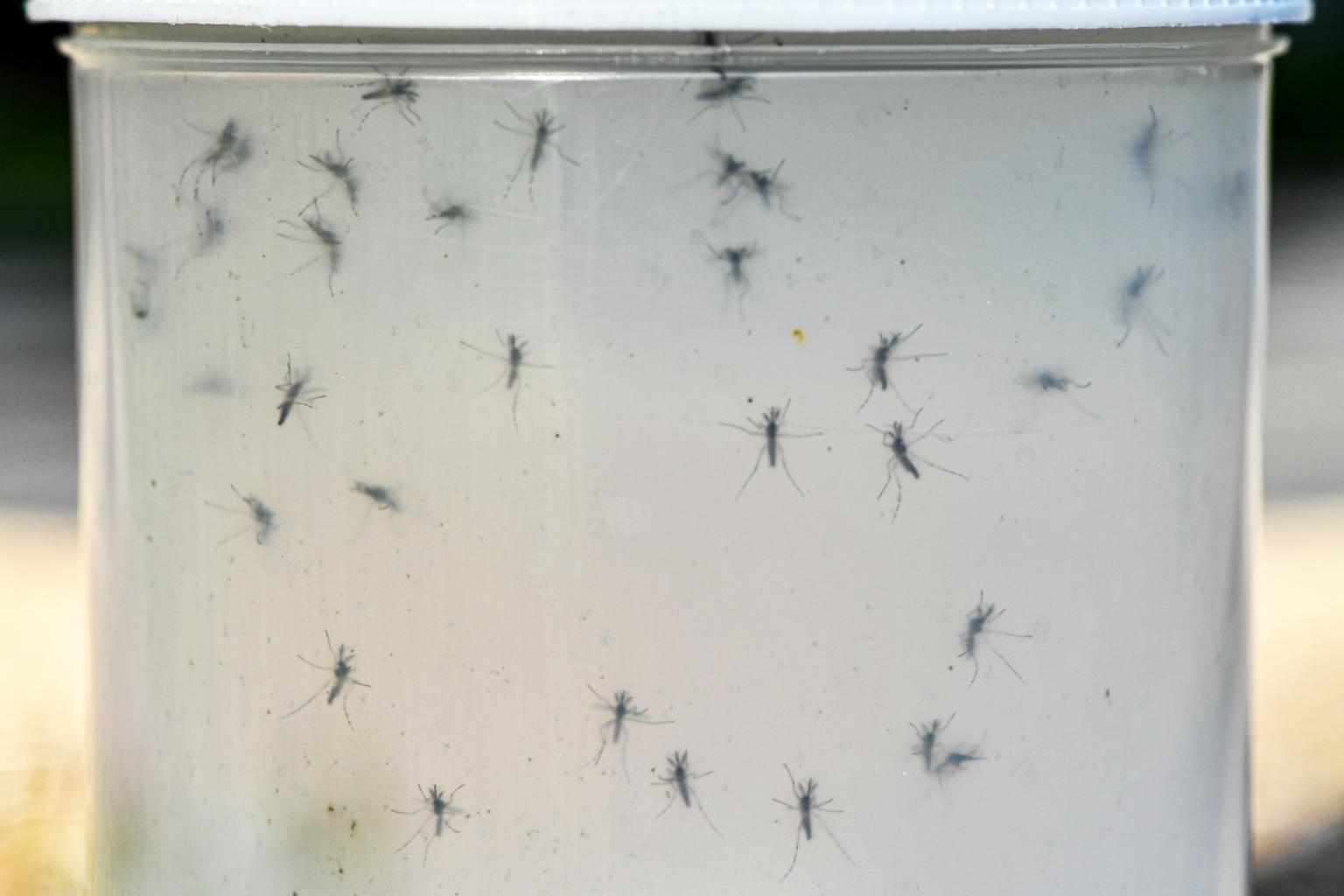Dengue cases fall but mosquito population increased by 12 per cent in recent weeks
Sign up now: Get ST's newsletters delivered to your inbox

NEA has provided town councils and stakeholders with surveillance data to prioritise dengue control measures.
ST PHOTO: LIM YAOHUI
SINGAPORE - Even as dengue cases fall for the seventh consecutive week, the National Environment Agency (NEA) is urging people to remain vigilant, as it has detected a small uptick in the Aedes aegypti mosquito population in recent weeks.
The 593 dengue cases reported last week constituted a fall of around 11 per cent from the week before, and a 56 per cent drop compared to seven weeks ago.
But people should not let their guard down, as the NEA said its surveillance system has detected a 12 per cent increase in mosquito population within residential areas in the past three weeks.
"As the number of dengue cases is still high and the rate of decline in weekly cases has slowed down in recent weeks, the increasing Aedes aegypti mosquito population may lead to another surge in dengue cases," it said.
This is because Singapore is still in the midst of the traditional peak dengue season, which lasts from around May to October yearly.
There were 195 active dengue clusters as at Tuesday (Sept 29), 11 fewer than a week before.
On the whole, 2,348 of 2,543 dengue clusters, or about 92 per cent reported this year, have been closed.
The NEA said a slower rate of disease transmission was observed in some of the larger dengue clusters, such as the 179-case cluster at Balam Road which had an average of less than one case reported per day in the past two weeks.
There are, however, still large dengue clusters located at Arnasalam Chetty Road, Kim Yam Road, Aljunied Road, Geylang Road, Guillemard Road, Ang Mo Kio Avenue 2, East Coast Road, Jalan Baiduri, and Bedok North Avenue 1.
To curb dengue transmission, the NEA and its partners have kept up a high tempo of preventive inspections for mosquito breeding, as well as inspections at cluster areas.
The NEA has also provided town councils and stakeholders with surveillance data to prioritise dengue control measures and target areas with higher mosquito populations.
These measures include stepping up the cleaning of drains in certain areas and removing discarded receptacles to prevent the accumulation of stagnant water.
This year's dengue outbreak is the largest in seven years, with 30,431 cases reported as at Tuesday, surpassing the previous high of 22,170 reported in 2013.
As at Aug 5, 20 people aged between 25 and 92 have died of dengue this year.


